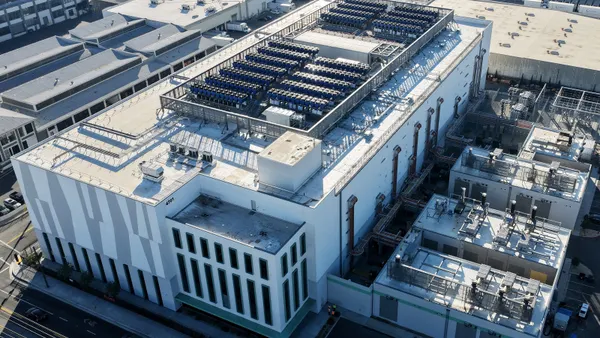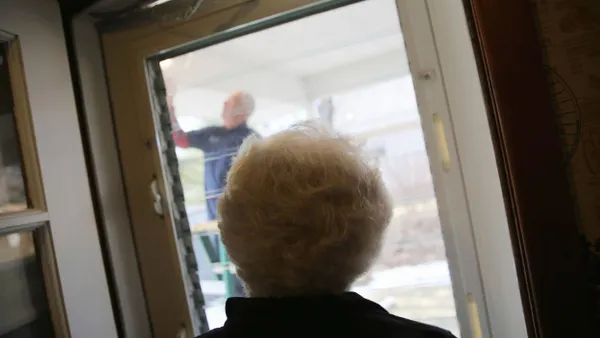Dive Brief:
- The California Energy Commission (CEC) yesterday adopted targets to double the energy efficiency savings in electric and natural gas uses by 2030 as required by Senate Bill 350, including subtargets for individual utility and non-utility energy efficiency programs.
- Passed in 2015, SB 350 mandated a 50% energy efficiency increase for existing California buildings by 2030. The state is also moving to a 50% renewables by 2030 mandate.
- CEC also approved two research grants funded by its Electric Program Investment Charge (EPIC) program, including almost $3 million to reduce wind energy costs and improve waste-to-energy projects.
Dive Insight:
California has an aggressive slate of efficiency, emissions and renewables goals, and actions taken by the CEC yesterday will play a part in meeting all of those targets.
CEC adopted the "Senate Bill 350: Doubling Energy Efficiency Savings by 2030" final report, which included indvidual utility targets and goals for non-utility programs.The report also outlines recommendations to meet the doubling targets for electric and natural gas uses, including funding and improving energy efficiency programs, achieving additional energy savings with new or improved measures and technologies, and improving the data collection for efficiency savings.
In a statement, the CEC concluded that "much of the untapped energy efficiency potential to meet the targets can be achieved by improving the energy efficiency of existing buildings, as well as appliances and other devices used in those buildings."
CEC also approved two research grants funded by the EPIC program, which supports innovations and strategies to advance clean energy technologies.
It awarded $1.2 million to RCAM Technologies to develop and test a reinforced concrete 3D printing technology that will be used to manufacture high performance, ultra-tall, low-cost wind turbine towers onsite. According to the commission, the technology could reduce the cost of wind energy in a low-wind-speed site by 11%.
Also, the commission awarded $1.6 million to Lystek International to build a mobile technology capable of pre-treating organic waste in order to enhance anaerobic digestion at wastewater treatment facilities to increase biogas and energy production.














